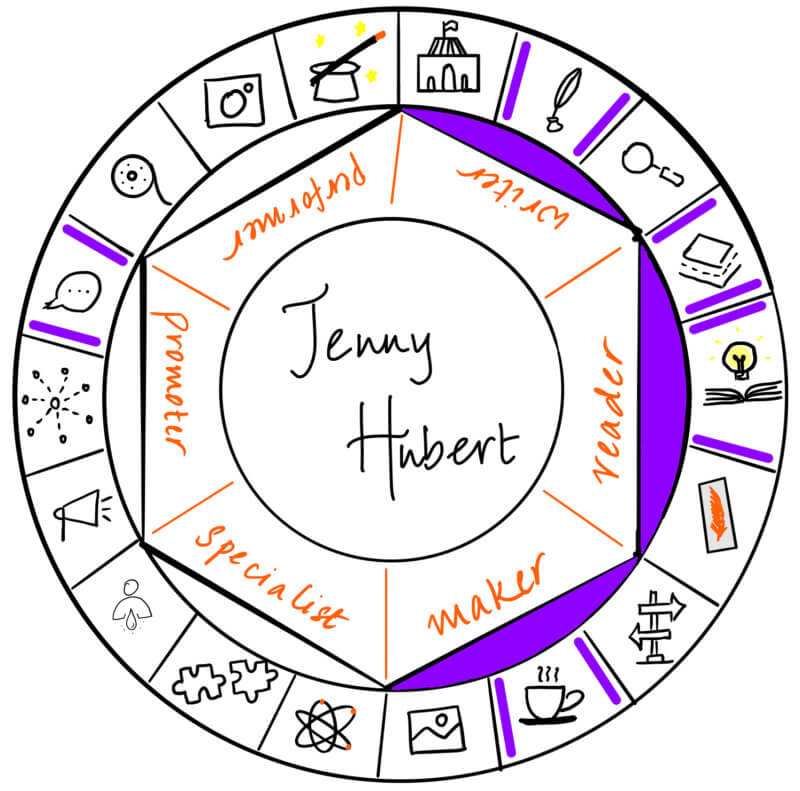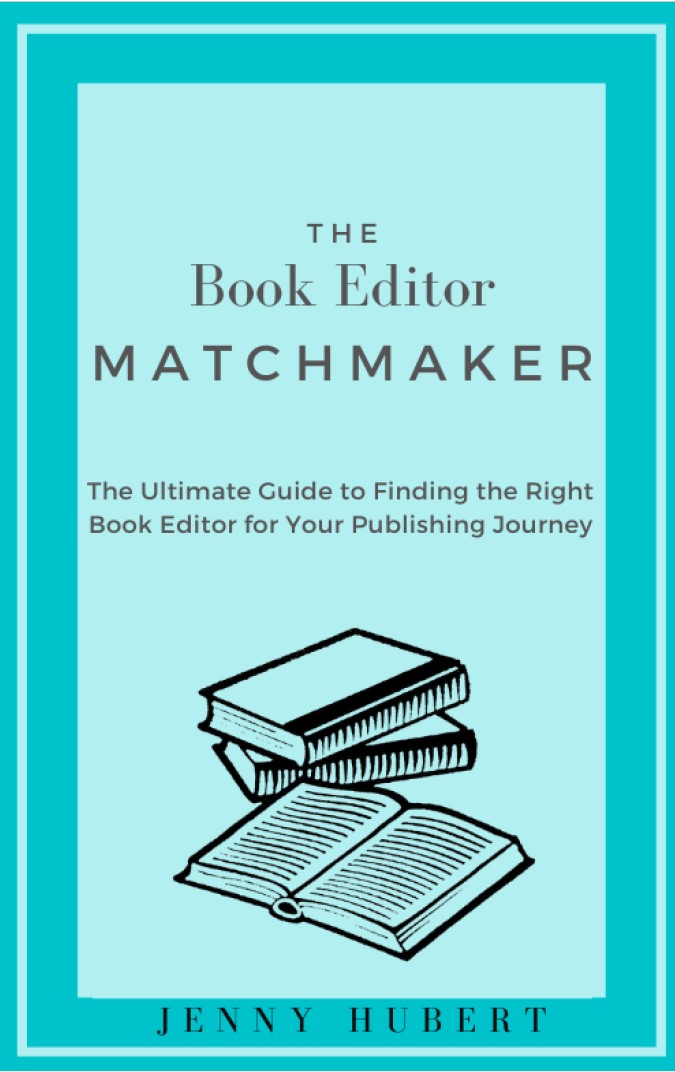Hello, friend! Welcome to a new post in The Creator’s Roulette! Today I am hosting author Jenny Hubert and she is shares some tips on how you can hire a book editor. Jenny Hubert is a freelance book editor and writer based in the NYC area. She has edited #1 New Releases on Amazon for fantasy authors. Her debut nonfiction book, The Book Editor Matchmaker, released on May 30, 2022, and she hopes to release her debut contemporary fiction novel by early 2023. Her favorite authors are Jane Austen and Agatha Christie. Coming from a book editor directly, we hope you will find this post helpful! Let’s get started.

Remember These Tips When Hiring a Book Editor
A guest post by Jenny Hubert
Whether you’re writing your first draft or polishing your fourth draft, at some point during your self-publishing journey, you’ll need to hire an editor, especially if you struggle with grammar and lengthy sentence structure. Many new authors admit to me they do not know where to start looking for one. They might also be afraid an editor will take their money and produce low quality or never edit it at all.
Despite these valid fears, you can hire a great editor with thorough research. I’ve got five tips for you that will help you distinguish a good editor from a bad one. Hopefully, this will get you started on what you should expect in an editor-author relationship. These are five of the many tips that I share in my e-book, The Book Editor Matchmaker, which teaches authors how to vet and hire book editors for their self-publishing journey. Check them out!
Confirm the editor works within your genre.
First, you’ll want to find an editor who works within your genre frequently. A professional who knows the tropes of your genre well will best serve your writing. When you find an editor you’re interested in, go on to their website and check out their portfolio. Is it filled with published books within the same genre as yours?
If not, or they don’t display a portfolio, ask the editor for samples of their editing within that genre. Comb through their edits and try to understand why they changed the author’s writing.
In addition, not all editors will be comfortable reading the content you’ve written even if they edit within your genre, especially if it’s R-rated; therefore, confirm that your editor is confident about reading and editing your book content.
Interview them via email or video consultation.
If you’ve found an editor who edits within your genre, it’s time to interview them for the job. Some authors might be intimidated to do this with a professional, but a good editor will be patient with you and answer any questions you have. After all, you’re likely paying them thousands of dollars for this job, so you should spend the time to make sure they’re the right fit.
With today’s technology, you don’t have to meet with a book editor in person or send your 300-page manuscript in a manila envelope through the mail. You can connect with a book editor online and interview them via email or video chat.
Here are some questions you can ask.
- Are you a published author?
- Do you offer sample edits?
- What software do you use?
- How long does a project of this length take?
These questions will start a conversation with your editor and help you determine if you are both on the same page about this project.
Speak with their past clients.
Another way to gauge an editor’s quality is by reading their reviews of their services. It’s great if an editor displays reviews on their website, but unless they use a review manager, they’re likely hand-selected by the editors themselves.
You can go above and beyond this method by asking the editor to give you the contact information of their past clients. In this format, the past client does not feel pressure to give only positive remarks since the editor cannot personally see their response. You will likely receive an authentic account of how the editing experience went.
Here is what you can ask their past client.
- Did the editor deliver on time?
- Would you change anything about the experience?
- If you write a sequel, would you hire them again?
If the editor cannot provide a reference for you, it’s not an instant red flag. Just be aware that they may not have the experience you’re looking for.
Do not tolerate impatience or a condescending tone.
Because you are hiring an editor who you will work with for months, you will be asking your editor a lot of questions. Most editors are familiar with answering the same questions over and over again, but some editors grow impatient with authors who are not familiar with the process. If you sense impatience from the editor you’re considering hiring, they may not have the patience to sit down and edit your manuscript line by line.
Some editors may feel the authority to talk down to you because they are more knowledgeable about the field. However, your lack of knowledge of the editing profession does not mean you are lesser than them. You have your own gifts and talents that I’m sure your future editor is not well versed in. You deserve to be viewed as an equal in any relationship, and an editor-author relationship is no different.
If you believe an editor is discriminating against your race, gender, sexuality, or age, discontinue all contact immediately and move on to the next editor on your list. An editor should never make you feel uncomfortable.
Always sign a legal contract.
Since you are committing to an exchange of services for money, you should sign a legal contract with your book editor. This not only protects you in case the editor does not deliver the service but also ensures that both parties agree on what the services include.
The contract should, at a minimum, include
- the date they start editing your book,
- the date they will return it,
- the exact price of the services,
- and a description of the services.
Be wary of an editor who shows disinterest in or flat-out rejects signing a contract. This may indicate that they’re not serious enough about their profession to sign a contract or that they may want to swindle you out of a service. If you are nervous about signing a contract, you can always ask me what a good sample of a contract includes!
Are you still nervous about hiring a book editor?
I understand! After all, you’re forking over a huge sum of money to a stranger you hardly know over the internet, which is full of scammers looking to make a quick buck. You can learn more tips and gain confidence about the book editor hiring process through my new e-book, The Book Editor Matchmaker. In this book, I walk you through multiple vetting processes you can combine to find a future book editor who is trustworthy!
If you’re not ready to hire a book editor yet, add The Book Editor Matchmaker on Goodreads, and sign up for free editing tips weekly via my website. I’m here to help you out until you’re ready to hire an editor!

Have you worked with a book editor before? What are qualities you look for?
Thank you for hanging out with us today. Follow Jenny for free editing tips on TikTok (@sweeter_than_fiction) and Instagram (@grammarwithjenny).
Cover Image by Kriti


Great tips! Will definitely pass this along next time somebody asks me how to find an editor and how to work with one. 🙂